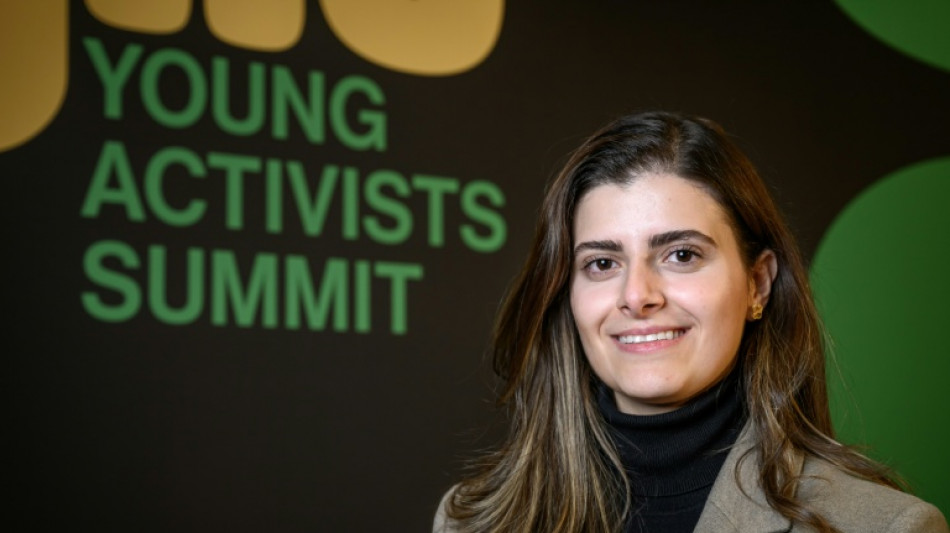

Youth activist turning trauma into treatment in Lebanon
Marina El Khawand was 18 when she saw her home town of Beirut shattered by the giant 2020 port explosion and decided she needed to help.
Today, at 24, she is among five laureates at Thursday's Young Activists Summit awards at the UN in Geneva, and described how the trauma of that day spawned a movement that has helped provide free medication and consultation to thousands in need.
"I needed to do something," said Khawand, who was starting her second year of law school when the explosion ripped through large parts of Beirut.
In the chaos of the blast, which claimed more than 220 lives, her family urged her to leave the country to continue her studies abroad.
But she told AFP in an interview that she decided to volunteer at the explosion site for a few days before leaving.
"I was traumatised... I walked between dead bodies, there was blood everywhere," she said, describing feeling powerless -- unable to offer much help.
- 'War zone' -
But one day she ventured alone to one of the heaviest hit neighbourhoods, Karantina, which was like "a war zone", and went into a building in search of a sick, elderly woman who had refused to evacuate.
Now a lawyer, Khawand recalls hesitating outside the door, fearful of what she might find inside.
"I entered and I saw an old lady, pale and not moving," she said, describing the relief she felt when she saw a slight movement in the woman's chest.
She noticed an empty medication distributor in the woman's hand, and recognised it as the same asthma inhaler her mother used.
Khawand quickly snapped a picture of the dosage and rushed to get a new one.
But Lebanon's healthcare system had taken a hit after the country's economy went into free fall in 2019, plunging many into poverty and sparking medication shortages.
She visited three pharmacies without any luck, shocked to find that such a common medication was so hard to come by.
She thought: "This woman survived the explosion... I cannot accept that she will die because she doesn't have her medication".
Her mother did not have the same dosage as the woman, so Khawand determined that her best shot was to post an appeal on Instagram.
An influencer she had tagged called her two hours later to tell her she had secured 12 boxes.
- 'Health beyond borders' -
"I was stunned," Khawand said, describing her panicked rush to get the medication to the woman in time.
After taking a few puffs on the inhaler, the woman gave Khawand "the most heartfelt hug".
"She whispers in my ear: Thank you for saving my life", Khawand said, tears glistening in her eyes.
"That sentence changed me," she said, describing it as the moment she realised "my purpose in life would be to save lives".
After that experience, Khawand founded the Medonations non-profit aimed at providing free and equal medical assistance to vulnerable communities in Lebanon.
Growing in the past five years to have collection points in over 65 countries, it says it has served more than 25,000 families across Lebanon with medical supplies and surgeries.
Khawand's team also provided oxygen machines during the Covid-19 pandemic, and during last year's deadly war between Israel and Hezbollah, helped provide displaced people with sanitary products, diapers, and medication.
She has also set up the Free HealthTech Clinic, with kits containing advanced AI-integrated devices enabling doctors to examine patients remotely, assess their prescriptions and adjust their medication.
"The doctor can be in Switzerland, the patient can be in Lebanon, and they can see the vital signs in real time," Khawand said.
"It's health beyond borders."
D.Mertens--JdB



